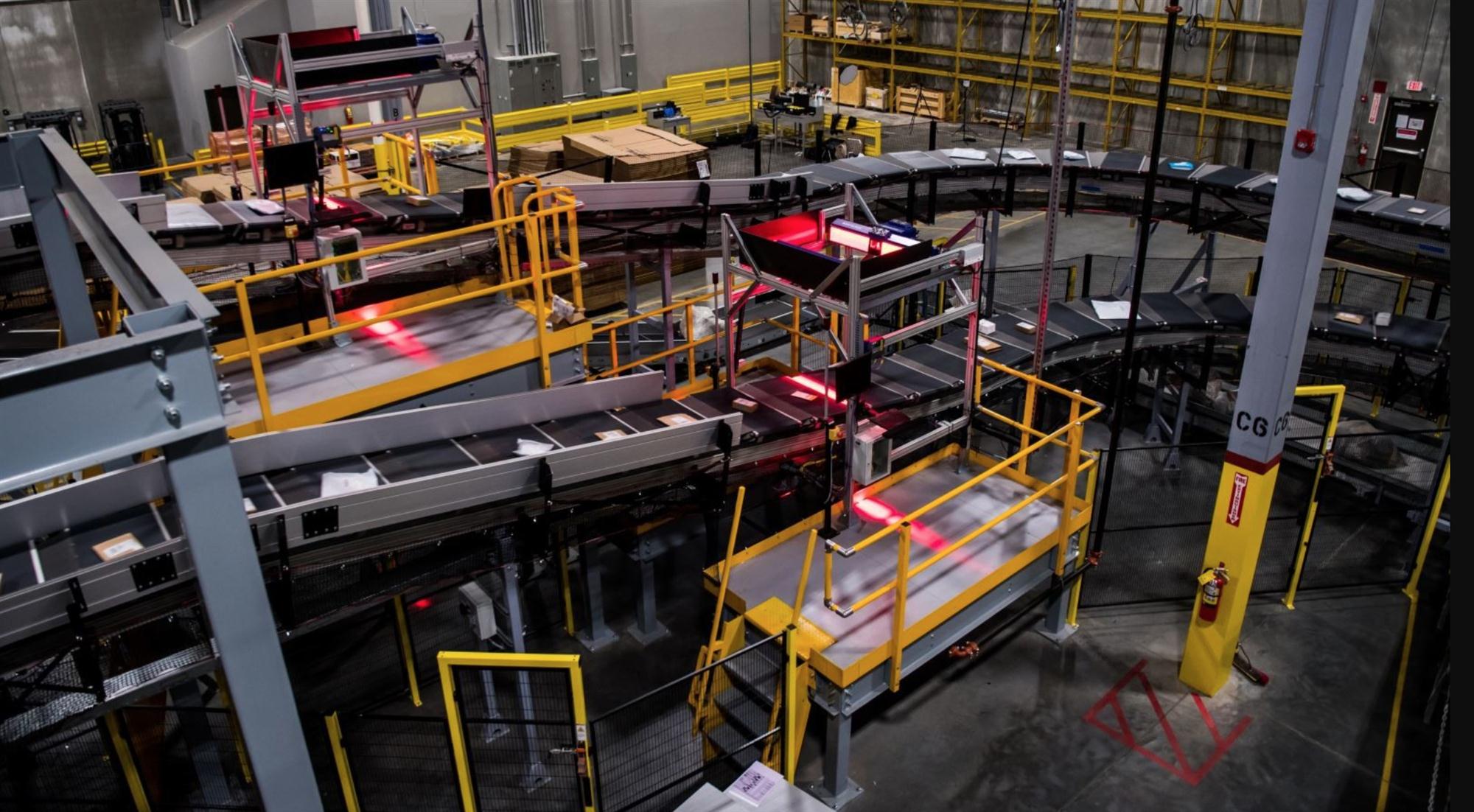The large integrated express carriers are beefing up their capabilities in the fight over parcel traffic as e-commerce giants Amazon and Alibaba expand their logistics reach.
DHL started operations at a new, dedicated e-commerce facility in New Jersey in November. With a footprint of 200,00 sq ft, it is significantly bigger than the integrator’s previous set-up, but its capacity is further augmented through fully integrated automation. Rather than align individual elements, the company has gone for an entirely automated system that is integrated into one unit. According to DHL, this has resulted in a 60% gain in capacity over a non-automated facility of equivalent size. It can process 40,000 shipments in an hour.
The integrator already has 18 dedicated e-commerce sites, but the New Jersey facility is the first one with integrated automation. Management is planning similar ones in Los Angeles and Cincinnati.

UPS opened a 1.2-million-sq-ft hub in Atlanta in October. The regional sortation and distribution facility can sort about 100,000 parcels in an hour.
Like DHL, the US integrator is putting a lot of technology into its set-up.
“UPS is installing high-tech systems that make our network more flexible, more resilient and more anticipatory,” said George Willis, president of US operations, in a statement. He described the new Atlanta facility as the largest of “a new class of sortation centres, or super hubs, which enable us to optimize how we move shipments through a precisely managed network of more than 1,000 small package operating facilities in the United States.”
In the company’s home market similar facilities are planned in Dallas/Fort Worth, Phoenix, Salt Lake City and Indianapolis.
Over the past year UPS has added over 5 million sq ft of capacity through opening new or retrofitting existing facilities with higher efficiency. These gains range from 25% to 35% and involved 22 sites.
Ahead of the holiday peak season UPS rolled out some 20 new technologies, among them a “peak volume alignment tool” using advanced analytics to synchronize volume demands with capacity, and network planning tools that combine advanced analytics, artificial intelligence and operations research to coordinate tractor-trailer movements between sortation hubs.
The technology investment has gone beyond individual tools and functionality. At the end of August UPS launched a technology company to streamline online orders. Ware2Go is a tech company and a digital platform that matches available warehouse space and fulfilment services with merchants’ demand for distribution solutions. The new offshoot matches merchants with vetted warehouse providers, sets up networks of such facilities where necessary, and manages storage, pack-and-pack fulfilment and shipping, using guaranteed two-day delivery by UPS.
In the main Ware2Go targets small and mid-sized merchants.
In the air the integrator has beefed up its freighter capacity by bringing in six Boeing 747-8 and three 767-300 freighters. To cope with peak season demand, it brought in another 35 planes on short-term leases.
These investments appear to have paid off. On December 10 management claimed that UPS had “achieved superior on-time delivery performance this holiday season” and was able “to deliver record volume in a timely fashion.”
FedEx boosted its capabilities in the e-commerce arena earlier this year with the acquisition of P2P Mailing, an international e-commerce delivery solutions provider, from the Delivery Group. According to FedEx management, P2P’s capabilities “complement and expand the FedEx portfolio of offerings important to the rapidly growing global e-commerce marketplace.”
Logistics competition is growing from within this marketplace, with both Amazon and Alibaba building up their logistics capabilities. The former unveiled plans in mid-November to establish an air gateway and package sorting facility at Wilmington, a former DHL freighter hub. The facility is expected to come on stream in 2019.
Subsequently the airport authorities at Rockford (a UPS hub which bills itself as an uncongested alternative to Chicago O’Hare for freighter operations) and Dallas/Fort Worth confirmed plans of the e-commerce giant to develop freighter hubs on their sites.
Cainiao, the logistics arm of Alibaba, is also on the expansion trail. It announced earlier this year that it had chosen six locations for global logistics hubs – Hangzhou, Hong Kong, Kuala Lumpur, Moscow, Dubai and Liege. Subsequently Alibaba founder Jack Ma confirmed that the company was planning “a big investment” in Liege.
Alibaba has not given firm dates for the development of the Liege hub, but Shenzhen 4PX, a major subcontractor for Alibaba, set up a Belgian subsidiary in August. It is designated to look after aircraft unloading, customs clearance, warehousing, packaging and management of international land delivery services.
By Ian Putzger
Air Freight Correspondent | Toronto



